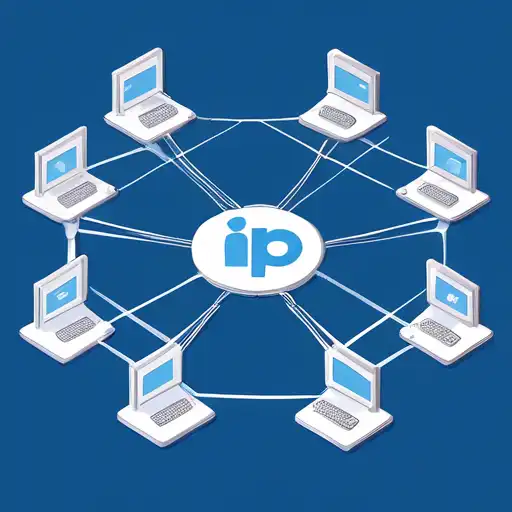Introduction to IP Addresses
In the digital world, an IP (Internet Protocol) address is akin to a home address for your device, allowing it to communicate with other devices on a network. Understanding IP addresses is fundamental for anyone looking to grasp the basics of networking. This guide will walk you through the essentials of IP addresses, their types, and how they function within networks.
What is an IP Address?
An IP address is a unique identifier assigned to each device connected to a network that uses the Internet Protocol for communication. It serves two main purposes: identifying the host or network interface and providing the location of the host in the network.
Types of IP Addresses
There are two primary versions of IP addresses in use today:
- IPv4 (Internet Protocol version 4): The most widely used version, consisting of four numbers separated by dots (e.g., 192.168.1.1).
- IPv6 (Internet Protocol version 6): Developed to deal with the exhaustion of IPv4 addresses, it uses a more complex format (e.g., 2001:0db8:85a3:0000:0000:8a2e:0370:7334).
How IP Addresses Work
IP addresses facilitate the routing of data packets across networks. When you send a request to access a website, your device uses the website's IP address to locate and retrieve the data. This process is seamless and happens in milliseconds, thanks to the Domain Name System (DNS), which translates human-friendly domain names into IP addresses.
Static vs. Dynamic IP Addresses
IP addresses can be either static or dynamic:
- Static IP Addresses: These remain constant and are often used by servers or hosting services that need a permanent address.
- Dynamic IP Addresses: Assigned by a DHCP server, these can change over time and are commonly used for consumer devices.
The Importance of IP Addresses in Networking
IP addresses are the backbone of internet and network communications. Without them, devices wouldn't be able to find or communicate with each other. They enable everything from sending an email to streaming videos online.
Securing Your IP Address
While IP addresses are essential for connectivity, they can also be a target for malicious activities. Using a VPN (Virtual Private Network) can help mask your IP address, enhancing your online privacy and security.
Conclusion
Understanding IP addresses is crucial for anyone interested in networking or the internet's workings. Whether you're setting up a home network or pursuing a career in IT, a solid grasp of IP addresses and their functions will serve as a strong foundation for your knowledge.
For more insights into networking basics, check out our guide on Networking Fundamentals.
